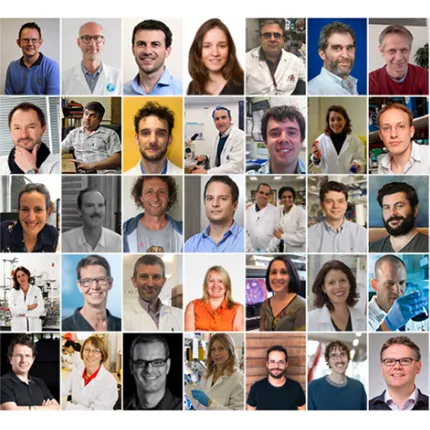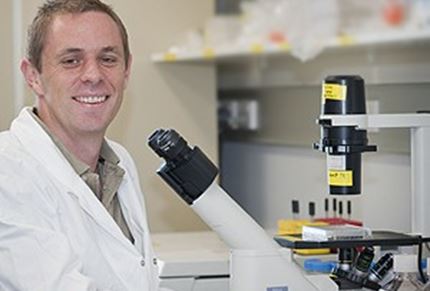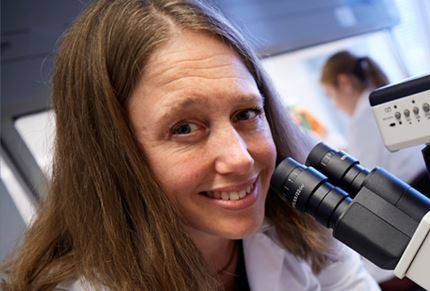Target acquired: Making ‘prodrugs’ for neuroblastoma that leave healthy cells unharmed
Project aim
Professor Robert Falconer and his team hope to target neuroblastoma with a new drug that stays inactive until it reaches the tumour. If successful, this could mean a new treatment for neuroblastoma with fewer side effects for patients.
Hope for the future
Despite showing initial promise as a treatment, many new cancer drugs fail in clinical trials because they cause unexpected side effects. One way to solve this is by making sure the drug only ‘activates’ where needed - in the tumour. This could mean treating the cancer without the nasty side effects.
Professor Falconer and his team plan to use this method to try and target neuroblastoma, a rare type of cancer that affects mostly babies and young children. They will create new drugs in the lab that can specifically target neuroblastoma tumours. Then, they plan to test how well they work against the tumours, and check that that the drug only activates once in the tumour and not the healthy tissue nearby.
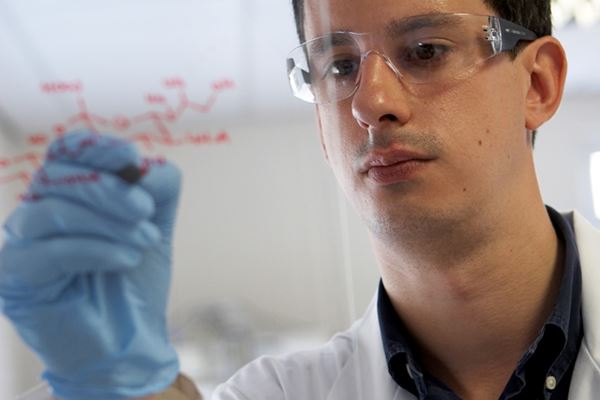
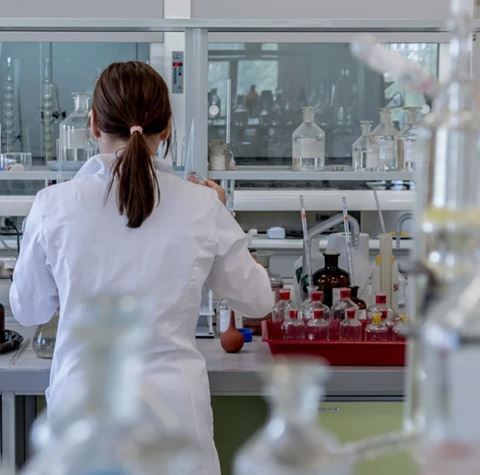
Meet the scientist
Professor Falconer loves the blend of research, mentorship and teaching that an academic career provides. He says that sharing the journeys of young PhD students at the start of their careers is one of the best things about his job. Outside of work, he is a big cricket fan and tries to get to see local England test matches when he can. He’s also a huge Formula 1 fan.
The science
An important way for cells to avoid becoming cancerous is by properly repairing any damage made to their DNA. In fact, many cancers share an inability to properly respond to DNA damage. Interestingly, this problem can become a useful target for cancer treatments – we can look for drugs that exploit these weaknesses to kill the cancer cells. If you can disrupt that DNA repair process so it works even worse than before, it can fail to the point that the cancer cell dies. One target linked to this kind of weakness, called CHK1, looks like a good candidate but researchers have had no luck targeting it yet.
Professor Falconer and his team hope to use this weakness specifically to treat neuroblastoma, a childhood tumour that commonly expresses CHK1. Importantly, the CHK1 in neuroblastoma is important in how the cells respond to DNA damage, so it’s a great fit for a new drug that could target and treat this cancer.
The researchers plan to create a ‘prodrug’, a drug that contains an inactive version of the drug that only becomes active once it reaches its target – in this case, the neuroblastoma tumour. If the team are successful, this could mean a new treatment with fewer side effects for patients with neuroblastoma in the future.
Neuroblastoma is a rare childhood cancer, but one with an urgent unmet clinical need. I would like to express my sincere thanks to the Curestarter supporters of Worldwide Cancer Research, without whom this research would not be possible.Dr Robert Falconer
Become a Curestarter and help us fund the next pioneering research project.
Our research projects wouldn't be possible without the funds we receive from people like you. Just £24 can pay for an hour of research.
Support us
